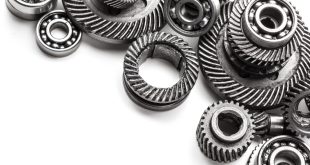Plumbing is one of the most essential systems in your home, yet it’s often misunderstood. Over time, various myths about plumbing have become widespread, leading many homeowners to make costly mistakes or neglect necessary maintenance. These misconceptions not only put your plumbing system at risk but also lead to wasted resources and unnecessary expenses. In this blog, we’ll debunk 10 of the most common plumbing myths and explain what you should do instead to keep your plumbing system running smoothly.
1. Myth: Lemons Clean and Freshen Your Garbage Disposal
Reality: Dropping lemon peels into your garbage disposal might make your kitchen smell fresh for a short time, but it doesn’t actually clean the disposal. In fact, the citric acid in lemons can corrode the metal parts of your disposal over time, reducing its lifespan. Additionally, lemon peels can get stuck in the blades, leading to clogs or mechanical issues.
What to do instead: To clean your garbage disposal, use a mixture of baking soda and vinegar. Pour half a cup of baking soda into the disposal, followed by a cup of vinegar. Let it fizz for a few minutes, then flush it with hot water. For stubborn grime, toss in a few ice cubes and run the disposal. This will help clean the blades and remove buildup effectively.
2. Myth: A Brick in the Toilet Tank Saves Water
Reality: This outdated water-saving tip can do more harm than good. Placing a brick in your toilet tank to reduce the amount of water used per flush may seem like a clever idea, but it can cause significant problems. Over time, the brick can break down and release debris into the tank, which can clog the system. Furthermore, the reduced water level may not provide enough force for a proper flush, leading to frequent blockages.
What to do instead: Upgrade to a low-flow toilet or install a dual-flush system that allows you to choose between a full or partial flush, depending on your needs. These modern fixtures are designed to save water without compromising efficiency.
3. Myth: Flushable Wipes Are Safe for Toilets
Reality: Despite being labeled as “flushable,” most wipes don’t break down as easily as toilet paper. They can accumulate in your pipes and contribute to clogs in your plumbing system. On a larger scale, they can also combine with grease and other debris in sewer systems to form massive blockages known as “fatbergs.”
What to do instead: Avoid flushing anything other than toilet paper down the toilet. Even wipes marketed as flushable should be disposed of in the trash. Place a small trash can in your bathroom to make it easy for family members and guests to properly dispose of wipes and other items.
4. Myth: Noisy Water Heaters Are About to Explode
Reality: If your water heater is making popping or rumbling noises, it’s not about to explode. These sounds are typically caused by sediment buildup at the bottom of the tank. As the water heats up, the sediment traps air bubbles, creating the popping sound. While this doesn’t indicate an immediate danger, it can reduce the efficiency of your water heater and lead to higher energy bills.
What to do instead: Flush your water heater annually to remove sediment and improve its efficiency. Turn off the power or gas supply to the heater, attach a garden hose to the drain valve, and let the water flow out until it runs clear. If you’re uncomfortable performing this task yourself, hire a professional plumber to handle it.
5. Myth: Pouring Boiling Water Down the Drain Clears Clogs
Reality: While boiling water might dissolve grease temporarily, it often pushes the grease further down the pipes, where it can solidify and create more significant clogs. Boiling water can also damage PVC pipes, leading to costly repairs.
What to do instead: Use a natural solution of baking soda and vinegar to break down minor clogs. Pour half a cup of baking soda into the drain, followed by half a cup of vinegar. Let it sit for 15–20 minutes, then flush the drain with hot (not boiling) water. For stubborn clogs, use a plunger or a plumber’s snake.
6. Myth: Any Household Cleaner Can Be Used on Plumbing Fixtures
Reality: Many household cleaners contain harsh chemicals that can damage plumbing fixtures, especially those with delicate finishes like chrome, brass, or nickel. Over time, these cleaners can strip the finish, leaving your fixtures looking dull and worn.
What to do instead: Use cleaners specifically designed for plumbing fixtures or a mild solution of vinegar and water. Wipe down your fixtures regularly to prevent buildup and keep them shining.
7. Myth: A Leaky Faucet Isn’t a Big Deal
Reality: A dripping faucet might not seem urgent, but it can waste a significant amount of water over time—up to hundreds of gallons a year. Beyond the water waste, a leaky faucet can indicate worn-out washers, damaged seals, or other underlying issues that could worsen if left unaddressed.
What to do instead: Fix leaky faucets as soon as possible. In many cases, replacing the washer or O-ring is a simple DIY task. For more complex issues, call a plumber to ensure the problem is resolved correctly.
8. Myth: Running Water While Using the Garbage Disposal Prevents Clogs
Reality: While running water helps flush food particles, it doesn’t prevent clogs caused by certain items like grease, coffee grounds, or fibrous foods (e.g., celery and potato peels). These materials can stick to the walls of the pipes and cause blockages over time.
What to do instead: Avoid putting problematic items into the garbage disposal. Always scrape plates into the trash before rinsing them in the sink. For best results, use cold water when running the disposal to help solidify grease, making it easier to chop and flush.
9. Myth: Chemical Drain Cleaners Are Safe for Pipes
Reality: Chemical drain cleaners may offer a quick fix for clogs, but they contain harsh chemicals that can corrode pipes, especially older ones. Overuse can weaken your plumbing system and lead to costly repairs.
What to do instead: Use natural or mechanical methods to clear clogs, such as a mixture of baking soda and vinegar, a plunger, or a plumber’s snake. If the clog persists, call a professional plumber to avoid damaging your pipes.
10. Myth: DIY Plumbing Repairs Always Save Money
Reality: While DIY plumbing repairs can be cost-effective for minor issues, they can backfire if done incorrectly. For example, overtightening a pipe fitting can cause cracks, leading to leaks. Attempting complex repairs without the right tools or knowledge can result in more extensive damage.
What to do instead: Know your limits when it comes to plumbing repairs. Simple tasks like unclogging a drain or replacing a washer are fine for DIY, but more complicated issues, such as pipe replacements or water heater repairs, should be left to a licensed plumber.
Conclusion
Believing in plumbing myths can lead to inefficiencies, damage, and unnecessary expenses. By understanding the truth behind these misconceptions, you can make smarter decisions for maintaining your home’s plumbing system.
Remember, when in doubt, always consult a professional plumber. Proper maintenance and timely repairs can save you money and prevent headaches down the line. A little knowledge goes a long way in keeping your plumbing system in top shape!
 Daily Blogger News Stay updated with the latest trends and insights. Your reliable source for daily updates and information.
Daily Blogger News Stay updated with the latest trends and insights. Your reliable source for daily updates and information.







